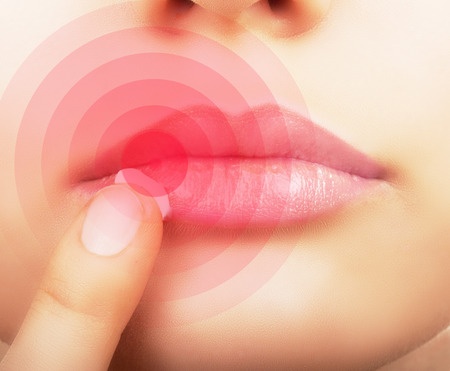What is Herpes Simplex 1?
 Herpes Simplex Virus 1 (HSV-1) is the virus that causes cold sores on the lips and the cornea of the eye.
Herpes Simplex Virus 1 (HSV-1) is the virus that causes cold sores on the lips and the cornea of the eye.What is Herpes Simplex 2?
Herpes Simplex Virus 2 (HSV-2) is the virus that causes genital herpes, though sometimes HSV 1 can cause genital infections.
Herpes simplex viruses can occur in other parts of the body, including the brain and the GI tract, though it is very rare. Widespread herpes simplex virus can occur in newborn babies and those with weakened immune systems.
What are the symptoms of Herpes Simplex 1?
- The oral infection, HSV-1, first causes painful sores inside the mouth that generally last 10 days to two weeks
- Sometimes the first case can also cause fever, head and body aches.
- HSV-1 most often develop in children
- The recurrent episodes of HSV-1 usually cause only one sore – they are often called cold sores or fever blisters
- These recurrent sores usually last about a week
What are the symptoms of Herpes Simplex 2?
- The genital infection, HSV-2, first causes painful blisters in the genital area.
- Fever and feeling sick can also be a symptom
- Sometimes there is pain when going to the bathroom
- Sometimes there are no symptoms
- The recurrent episodes of HSV-2 start with symptoms of tingling or discomfort before the blisters appear. These are painful and they break open to leave sores
- These recurrent sores usually last about a week
How does Herpes Simplex 1 and Herpes Simplex 2 spread?
The herpes simplex virus is highly contagious and spreads by direct contact with the sores. It can also spread by contact with the oral and genital areas of those who do not actively have a sore but are in between episodes.
What is the treatment for HSV-1 and HSV-2?
There is not a treatment that can cure the herpes simplex viruses. Antiviral drugs may be used to relieve the discomfort and lessen the length of outbreak time.
If the discomfort is minimal, recurring episodes can be treated by keeping the infected area clean or using mild topical anesthetics.
Are there ways to prevent HSV-1 and HSV-2?
Because herpes simplex viruses are contagious, people with the infection of the lips should avoid kissing as soon as they feel the first tingling or the first blister appears until it is healed. Oral sex should also be avoided.
With genital herpes, condoms should be used at all times, even when there are no visible blisters or symptoms.
